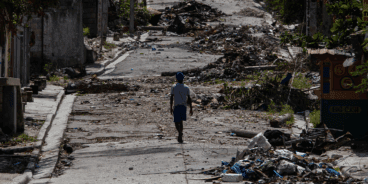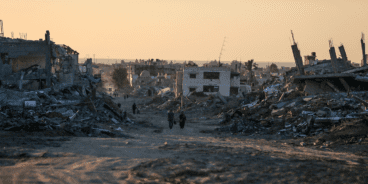
Preventing corporate involvement in mass atrocity crimes: Implementing the UN Guiding Principles on Business and Human Rights
From telecommunications companies disseminating hate speech to extractive companies and their security providers cooperating with abusive state security forces, there are numerous examples of the ways in which the business sector may be involved with serious human rights abuses amounting to mass atrocity crimes.
This briefing paper, by Rachel Davis, the Managing Director of Shift, explores the implications of the global expectation that businesses should respect human rights, including by avoiding involvement in mass atrocity crimes. Specifically, it applies the lens of the UN Guiding Principles on Business and Human Rights, unanimously endorsed by the UN Human Rights Council in 2011, to the role of states in upholding the Responsibility to Protect (R2P), and highlights some key areas for further attention and action when it comes to business involvement in mass atrocity crimes.
This paper builds on an initial discussion of these issues by government officials from a range of African, Asian, European, Latin American and North American countries and other experts during the fourth annual meeting of the Global Network of R2P Focal Points. It is intended as a first step in understanding the implications of the UN Guiding Principles for the R2P agenda and aims to generate further discussion and ideas.
Related Content


The Responsibility to Protect and the Overlooked Threat of Gang Violence
